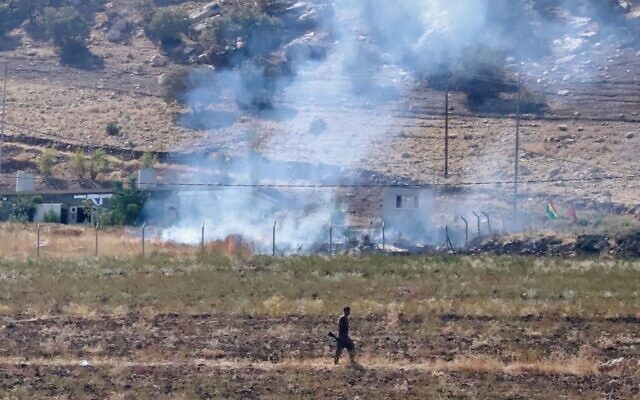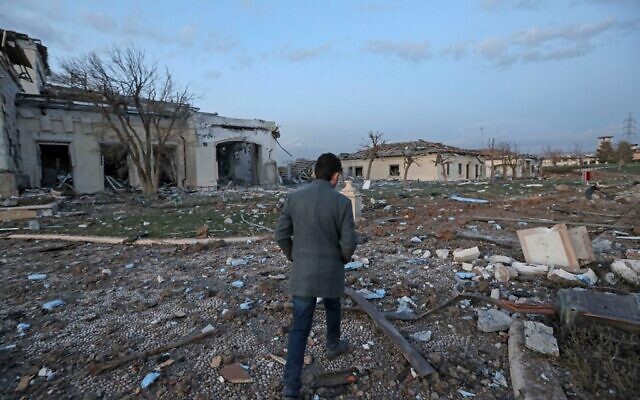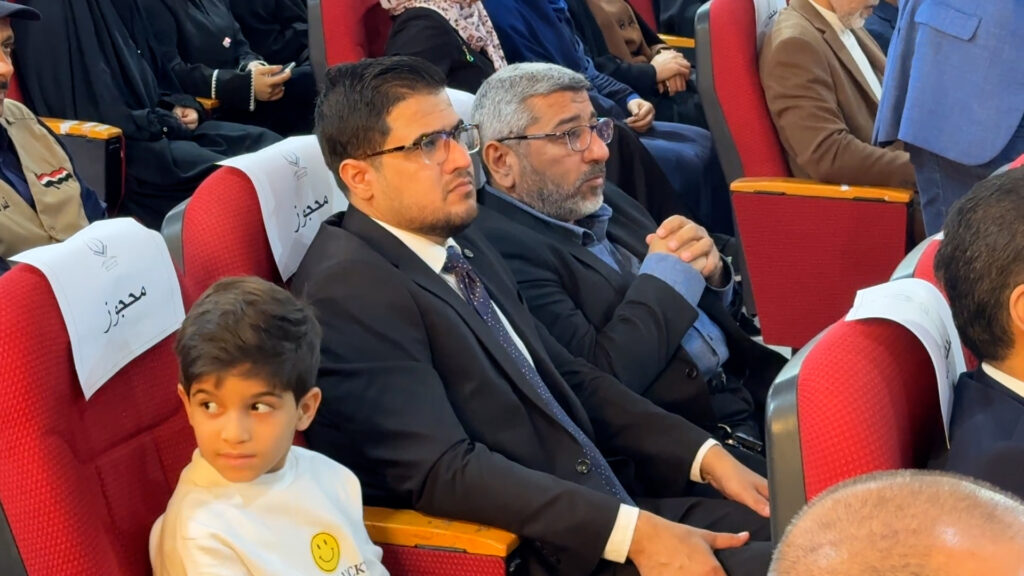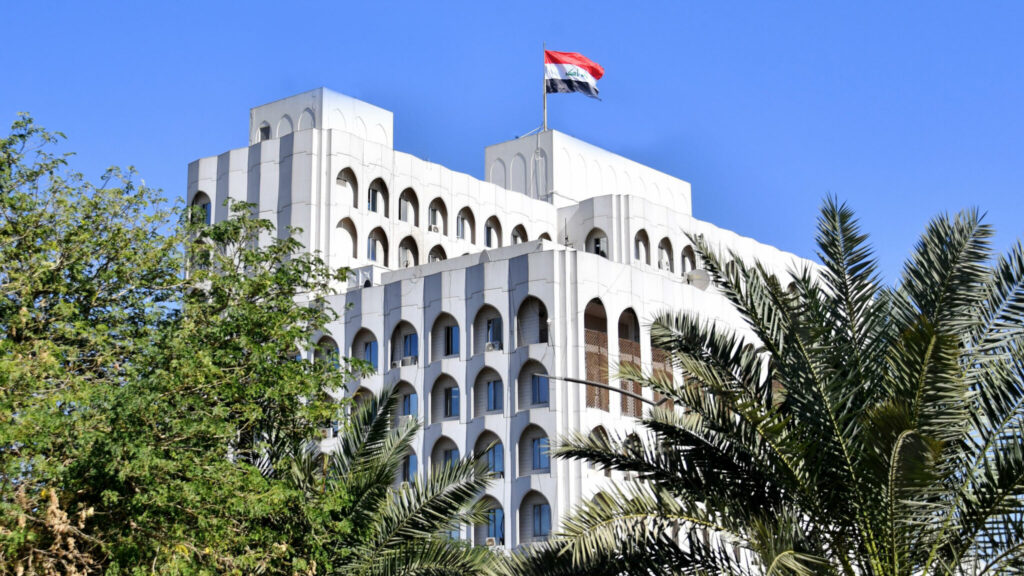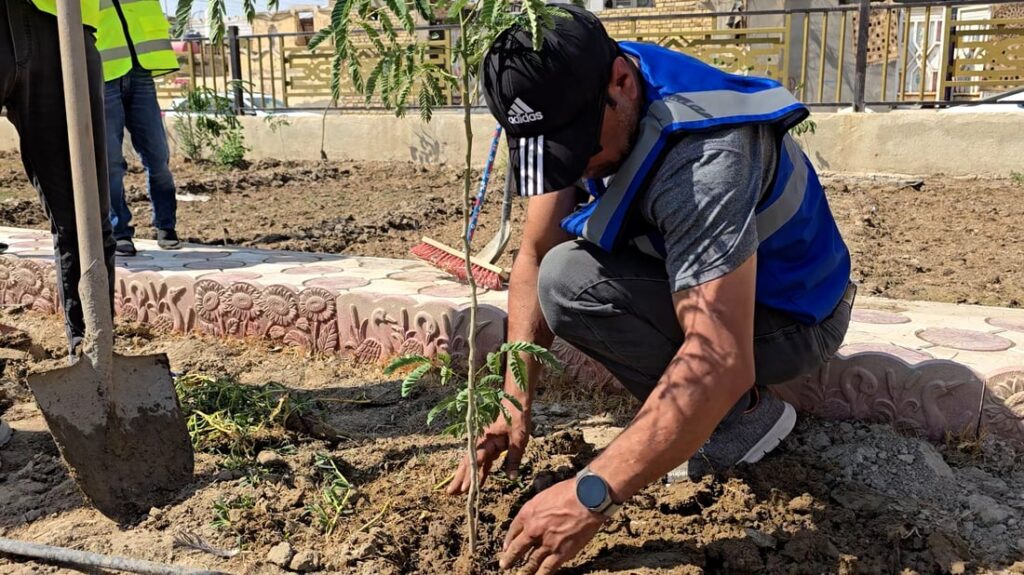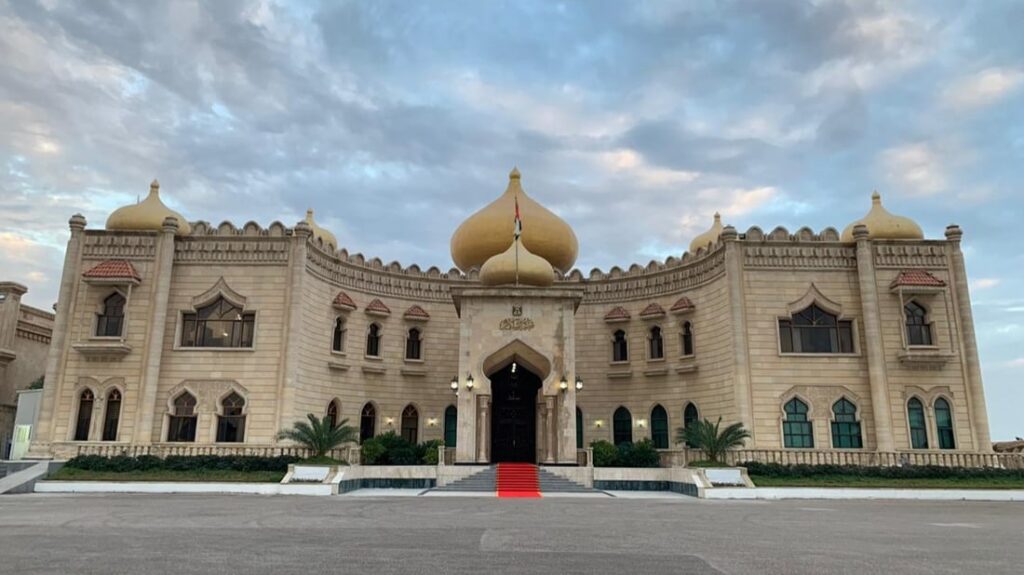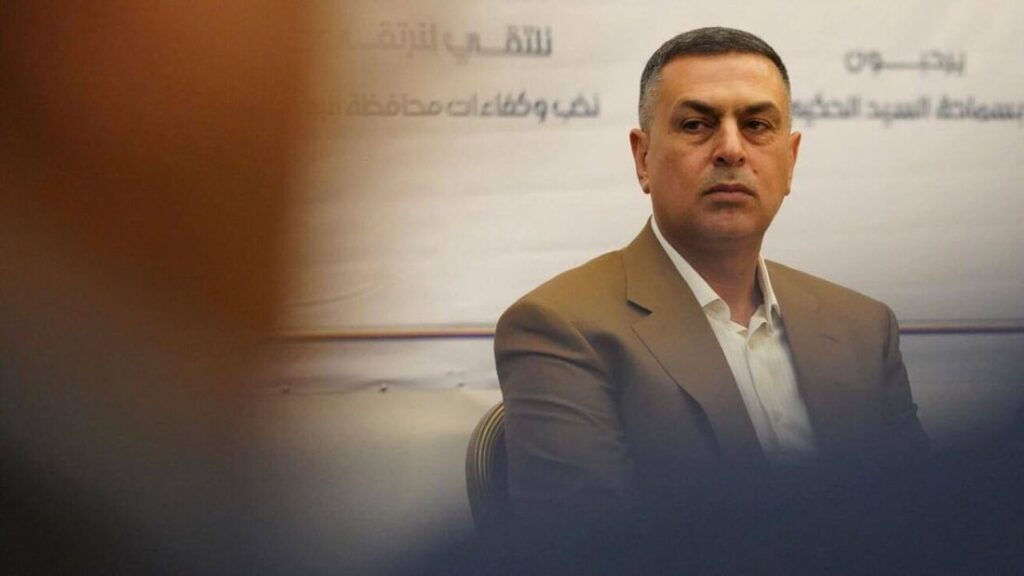At least 1 killed, 8 wounded as Iranian missiles strike northern Iraq

BAGHDAD (AP) — Missiles fired from Iran targeted bases of an exiled Iranian Kurdish opposition group in neighboring Iraq on Monday, killing at least one person and wounding eight, local officials said. It was the latest in a series of such attacks in recent weeks.
One official with the Iranian opposition in Iraq later put the death toll at three while the health minister in Iraq’s semi-autonomous, Kurdish-run region said the casualty number was expected to rise.
Iran’s paramilitary Revolutionary Guard confirmed the attack in Iraq’s Sulimaniyah province and said it had targeted the bases of “terrorist groups” by drones and missiles, according to Iran’s official IRNA news agency.
Kurdish Prime Minister Masrour Barzani condemned the attack as a violation of the sovereignty of Iraq and the Kurdish region. The UN mission in Iraq also condemned the attack, saying Iraq should not be “used as an arena to settle scores.”
“Dialogue between Iraq and Iran over mutual security concerns is the only way forward,” the UN mission added.
Get The Times of Israel's Daily Edition by email and never miss our top stories
Iraq is planning to pursue diplomatic steps in response to the Iranian attacks, said Iraq’s Foreign Ministry spokesman Ahmed al-Sahaf.
A Kurdish peshmerga fighter walks as smoke billows in the area of Zargwez, Iraq, following Iranian airstrikes on September 28, 2022. (Shwan MOHAMMED / AFP)
“The Iranian bombing offends the principle of good neighborliness. Some neighbors systematically abuse Iraq,” he said.
The missiles targeted the Kurdish Democratic Party of Iran, which has waged an insurgency against the Iranian government since the 1979 Islamic Revolution.
Korosh Nosrati, an Iranian opposition official in Iraq, said three people died in the missile strikes. Saman Barzanji, the Iraqi region’s Kurdish health minister said the casualty numbers could rise.
Iran stepped up attacks targeting Kurdish opposition groups exiled in northern Iraq in September accusing them of orchestrating ongoing anti-government protests that have swept Iran over the past two months.
Gen. Mohammad Pakpour, chief of the Revolutionary Guard’s ground forces, reiterated the accusation Monday, saying the Kurdish groups played a role in protests in Iran, according to the semi-official Tasnim news agency.
“The terrorist groups carried [out] terrorists activities in Iran from Iraq,” the report quoted Pakpour as saying. He also claimed Iran had found evidence linking separatist elements to the protests, without offering proof for that claim.
A man walks past damaged mansions following an overnight attack in Irbil, the capital of the northern Iraqi Kurdish autonomous region, March 13, 2022. (SAFIN HAMED / AFP)
Tasnim also said that Pakpour demanded that Iraq disarm and order the opposition group’s bases to be moved a further 120 kilometers (75 miles) from the Iraq-Iran border.
Iranian opposition groups in Iraq have vocally backed the protests in Iran but deny organizing them. They say Tehran is trying to scapegoat them to divert attention from the widespread anger fueling the nationwide protests, in which protesters have been killed by Iranian security forces and thousands more detained since September.
Amnesty International has reported that detainees have been tortured and killed unlawfully inside Iran’s prisons, and demanded that Iranian authorities allow international monitors unhindered access to Iranian prisoners.
Hossein Ronaghi, an imprisoned blogger, was transferred to hospital leading to allegations he had suffered torture in Evin Prison. Iran’s judiciary said Monday he was “in good health,” without providing more details about why he was receiving medical care or the charges against him.
Screen capture from video of the arrest of prominent Iranian dissident Hossein Ronaghi, September 2022. (Twitter. Used in accordance with Clause 27a of the Copyright Law)
Ronaghi and his two lawyers were arrested in September. Since 2009 and during post-election turmoil, authorities detained Ronaghi routinely on security charges.
Ronaghi, a political critic and activist, was known for teaching people how to bypass Iran’s internet blockades even as the government blocked access to many social network platforms.
The protests in Iran were sparked by the Sep. 16 death in custody of 22-year-old Mahsa Amini, who was detained after allegedly violating the country’s strict dress code for women. Amini was Kurdish.
The protests first focused on ending Iran’s mandatory headscarf, or hijab, but have transformed into calls to end the country’s clerical rule. The demonstrations are now in their eighth week.
